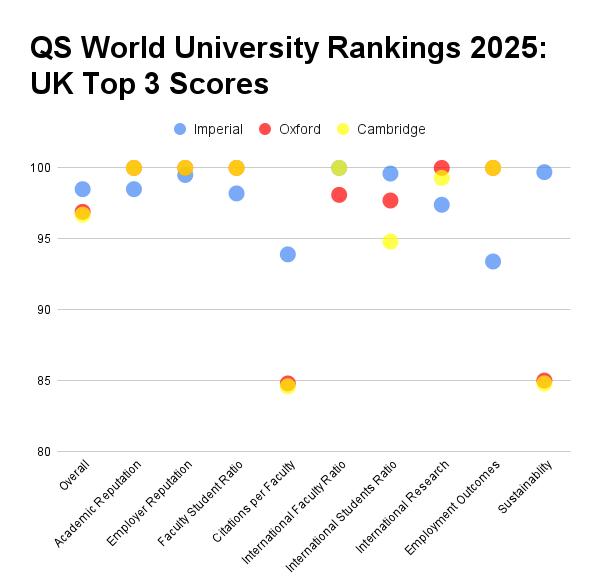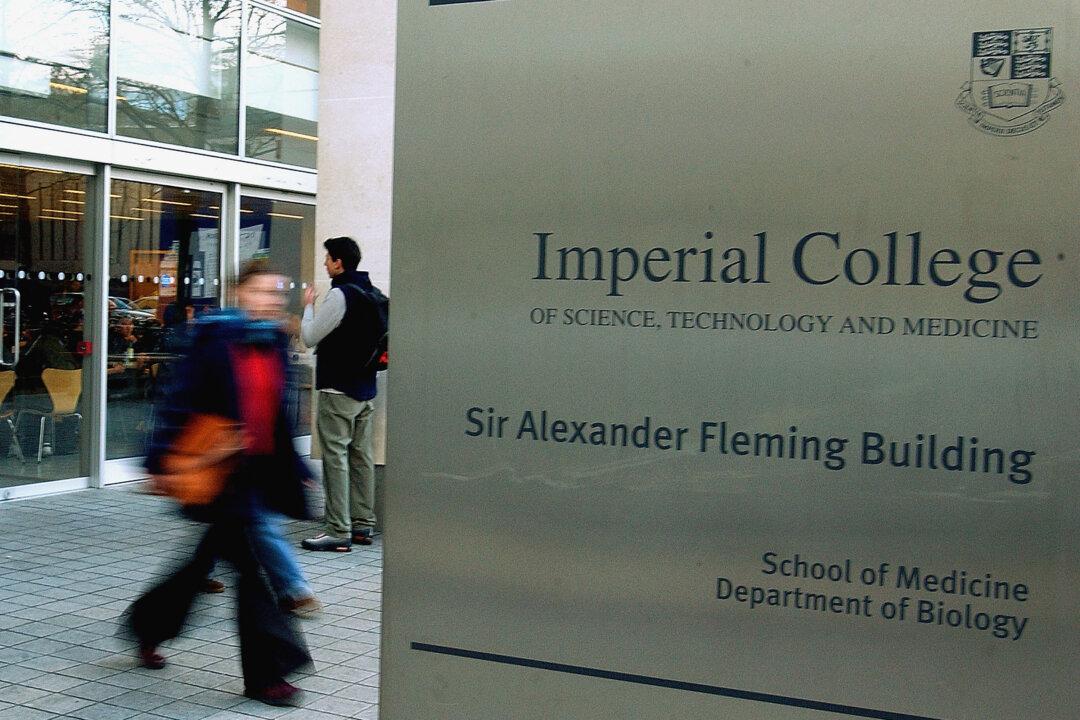Imperial College London has beaten both Oxford and Cambridge in global university rankings for the first time, scoring significantly higher in sustainability and citations.
The QS World University Rankings 2025, published on Tuesday, saw Imperial rising to second place in the global rankings and taking the top spot among British universities, ending years of Oxbridge dominance.
It’s the first time that the top spot was taken by neither the University of Oxford nor the University of Cambridge since the global rankings began 20 years ago.
In 2014, both Imperial and Cambridge came in joint second place, but this year Imperial stands alone in that position for the first time.
Over 1,500 institutions were ranked this year. The U.S. Massachusetts Institute of Technology (MIT), which has stayed in the first place since 2012, remained on top of the international league table.
A total of four British universities have made it to the top 10.
Cambridge, which was in second place in the 2014 rankings, has been knocked to fifth place, behind Harvard, while Imperial rose from sixth place to second place.
Oxford stayed at third place, and UCL has remained in ninth place.
This year, of the 90 British universities ranked by QS, 20 improved their position since last year.
High ‘Sustainability’ Score
The QS said Imperial’s improved position in the table is owing to its research performance, employability scores, and sustainability commitment.The three universities got similar scores in most of the metrics, but Imperial scored significantly higher in sustainability and citations per faculty while trailing behind in employment.
Imperial scored 99.7 in sustainability, which measures the social and environmental impact of an institution and its governance.
The score increased from 94.4 in 2024, putting Imperial at sixth place.
Oxford and Cambridge ranked 126th and 127th respectively with scores of 85 and 84.8, down from 97.8 and 97.3 in 2024.
Imperial also enjoyed more citations per faculty, scoring 93.9 in the category, while Oxford and Cambridge scored 84.8 and 84.6.
However, regarding employment outcomes, Imperial was at 61st place with a score of 93.4, while Oxbridge institutions scored 100.
Oxbridge also retained impeccable scores in academic reputation, employer reputation, and faculty student ratio.

Professor Hugh Brady, president of Imperial College London, said the university’s ranking “is a testament to the quality and commitment of our entire community.
“It is inspiring to see our students, staff, and partners come together every day to interrogate the forces that shape our world and address the challenges facing humanity and our planet,” he said.
According to QS, British higher education is struggling in the face of funding shortages and restrictions and “ambiguity” facing the status of international students.
Chief Executive Jessica Turner said: “In the decade since Imperial College London was last crowned the United Kingdom’s leading university, the country’s sector has relentlessly continued to achieve world-leading performances despite the turbulence the country has faced, producing world-leading research and remaining one of the globe’s premier study destinations.
“However, this year’s results suggest that British higher education has limited capacity remaining to continue excelling in the face of funding shortages, drops in student applications, and ambiguity about the status of international students.
“Whatever the result of July’s election, the next government must make a properly resourced, continually championed higher education sector an urgent priority. It is one of the UK’s great assets and achievements and must be maintained accordingly.”







